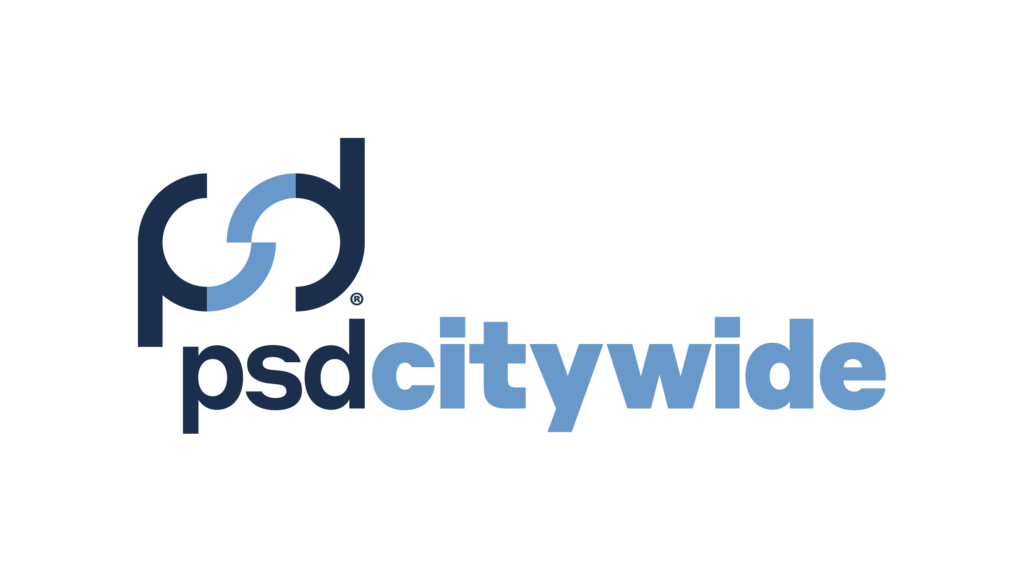Only a few months prior to the COVID outbreak in North America, I delivered the conference keynote address to Ontario’s municipal CAOs/City Managers on the theme of “We Are All In This Together.” Who could have known then that a civic values revolution was about to take place, brought on by a global pandemic, making this phrase a ubiquitous civic call, trumpeted from every street corner, every public institution and business, including multinational corporations?
Pre-COVID, my talk felt counter-cultural and aspirational in the face of the ever-rising polarization in our communities, declining civic health and disintegration of shared civic values. It was a time when the very idea of social unity as a cornerstone of city-building seemed from a bygone era, lost from general public discourse, lost even from the consciousness of many civic leaders. Few and far between were the statesmen and women who spoke convincingly of finding common ground, seeking the common good and reminding us that we are all, in fact, on one ship with one destiny.
Virtually overnight, COVID made sacrificing economies, businesses, livelihoods, schools, sports and more for the common good responsible public policy. Caring for the sick, the poor, and the homeless became an imperative and compassion became a measure of a community’s worth. Public health officers and front-line service employees—from health workers to grocery workers to civic employees— became our heroes, rather than corporate titans and celebrities. Sharing and cooperation trumped competition. Political leaders, community builders and celebrities alike appealed to citizens to express social solidarity, exercise restraint and consideration for others, encouraged neighbours and strangers to be kind and look out for one another. Well-being went from a feel-good concept to a central organizing principle for organizations and societies.
The Revolution Will be Measured
It seems like an eternity has passed since the lockdowns and social distancing measures began, but it wasn’t that long ago, that our modern, individualistic and consumer society championed an entirely different set of civic virtues and social norms—such as “might is right” tribalism, a “look out for number one” ethos and ideology that advances “greed is good.”
Traditional service organizations were struggling to rebrand seemingly outdated slogans like Service Over Self and We Serve in order to attract a new generation to their waning ranks. Volunteerism as both an idea and practice had lost currency and was on a steady decline.
Many local governments had given in to the vending machine model of governance—casting citizens as consumers, there to rate, judge and consume civic services. Unlike citizens, consumers have no obligation to consider the common good, the interests of others, even future generations. Besides, a “consumer’s” relationship with their municipality is purely transactional – taxes in, civic services out.
In this cultural climate, who dared to call on citizens to consider their civic responsibility to their neighbours, community and country? To put the interests of others ahead of their own? To consider the common good? To make sacrifices today for the long-term sustainability of our infrastructure, environment and communities? Given the public’s political appetites and social media vitriol, there seemed to be little electoral advantage or appeal for civic leaders to make this case.
Pre-COVID, it was primarily the culture warriors that stepped in these turbulent waters. Today, COVID has revolutionized our values and the local government cultural landscape has seen some of the most dramatic transformations. These changes have been measured. The results, together with ongoing culture change measurement and management, can guide municipal decision-makers and leaders to ensure the best parts of this cultural transformation are lasting.
Since our values reflect our needs, crises powerfully and dramatically shift our needs and therefore accelerate changes in our values, behaviour and culture.
Pandemics Reflect and Shape Culture – Leadership Matters
Typically, culture change is a slow and steady process. It requires years of intentional, competent and sustained leadership. If you think for a moment just how difficult it is to change an unfortunate personal habit—mental or physical—there is an immediate appreciation for the challenges involved in transforming the ways in which many live and work together and relate to others. Patience is as much a necessity as it is a virtue.
Since our values reflect our needs, crises powerfully and dramatically shift our needs and therefore accelerate changes in our values, behaviour and culture. The history of pandemics and their social and cultural impacts have been well-documented.
The Plague of Athens is said to have laid the seeds for the destruction of Athenian democracy as the ensuing social, political and economic chaos challenged burgeoning democratic values, making room for authoritarian leaders. Significant here is the loss of leadership as many, including Pericles, the great leader of the golden age of Athenian culture, succumbed to the plaque.
The medieval Black Death, with its stunning death tolls that affected rulers and serfs alike, challenged the rigid social-economic hierarchy as anyone left was suddenly “essential” and more valued than before—eventually unleashing a civic revival with Renaissance values. This early Renaissance was then sustained by visionaries such as Lorenzo di Midici who were inspired to bankroll its advancement.
Both the Plague of Athens and the Black Death reported dramatic rises in “lawlessness” as the faith of people in their governments and rulers had been shaken. Loss of social order and cooperation is more likely in a society already plagued by trust issues heading into a pandemic.
As we know from the global Edelman Trust reports, both the United States and Canada were already experiencing declining trust levels towards institutions, businesses, the media and even between people prior to COVID. Pandemics have a way of highlighting a society’s fault lines and the politicization of the crisis, the rise in public shaming and aggression in public spaces are symptomatic of a preexisting condition.
We are clearly at cultural crossroads. What will the new normal look like? What does civic recovery look like? Will we move towards greater authoritarianism or its opposite? Will our actions today lead to greater human flourishing and a more compassionate society in the future? Will our institutions and organizations survive or thrive with the tsunami of challenges they face in recovery? How we manage a pandemic generally depends on many factors, but key are the values and local government culture a society has going into a pandemic and the leadership that emerges as dominant into the future. What you do matters.
Barrett Values Centre recently conducted a global culture assessment to better understand the impact the pandemic has had on organizational culture and what is being called for going forward to help us recover and thrive in this new future being created. Over 2500 people, including 300 senior managers were surveyed and the results were dramatic and heartening.
A few key local government culture shifts which have taken place include organizations shifting:
- From control to adaptability: organizations have responded with incredible adaptability, as digital technology has been able to support whole organizations and industries working from home.
- From performance to people-focus: Leaders have been compelled to put the needs of their employees first reflecting the importance of well-being, caring and work/life balance.
- To healthier organizational cultures: Yes, there has been a great deal of fear and uncertainty, however, our need and desire for connection and making a meaningful contribution have brought out the best in human nature.
These are the kinds of changes that would normally take years of organizational leadership, culture change management and effort. Normally they wouldn’t happen without a very conscious transformation in values or without leadership change. Intentionality, vision, purpose and leadership is required to sustain these positive culture shifts.
Five Years of Local Government Culture Change in Three Months
Local government culture shifts played out dramatically. Pre-COVID, respondents characterized local government culture as highly controlled, restrictive environments with efforts by people attempting to collaborate and work together hindered by rigid infrastructures. During COVID, these same civic leaders and employees reported that:
- Civic employees’ primary needs are being addressed.
- People exploring new ways of working and connecting.
- Many restrictive challenges have reduced significantly.
The top values in pre-COVID local government culture were primarily fear-based limiting values like bureaucracy, silo mentality, hierarchy, blame, compliance and control. These values sadly reflect a high level of cultural entropy – a measurement of the degree of dysfunction (friction and frustration) in an organization. Where cultural entropy is high, levels of trust and internal cohesion are low.
During COVID, the dominant values used to describe local government culture were the type that characterizes vibrant, thriving organizations: adaptability, community involvement, digital connectivity, work/home balance, commitment, safety, well-being (physical/emotional/mental/spiritual), compassion, and cooperation. The significance of these values and culture shift cannot be overemphasized. In fact, it is a cultural revolution that, if sustained through conscious leadership, will help local governments and communities weather the daunting challenges before us – from the possible COVID waves yet to come, to the threat dramatic infrastructure funding shortfalls and climate change pose to sustainable service delivery.
We are also aided by a greater appetite, understanding and appreciation now in society and in our organizations of the importance of culture in fostering human wellbeing. In our global values assessment, it was found that “well-being” rose in personal importance during the pandemic from #26 to a top five personal value.
According to the UN’s Making Cities Resilient Program, resilient cities are ones characterized by high levels of trust, inclusion and social cohesion. City Halls ought to lead by example and if there is one sector that cannot afford to neglect this “human infrastructure” of community building, it is the municipal sector. After all, community building is a human-centred project and we are, indeed, all in this together. COVID has put our interconnectedness on full display.
If we can keep this positive culture change momentum, we have a potential civic renaissance in the making. Be resilient. Join the revolution by preparing your culture change measurement and management plan today.
DIANE KALEN-SUKRA, MA, CMC is an author, speaker, educator, coach and certified culture change consultant with the Barrett Values Centre. Diane’s firm Kalen Consulting inspires and equips leaders to build resilient communities through good governance, asset management, servant leadership, compassionate culture, and civic education.
Subsidiary Kalen Civic Academy hosts Resilient Civic Leadership: Compassionate Integrity Training for Civic Leaders, a university certificate program through the Centre for Compassion, Integrity & Secular Ethics at Life University. This 10-session program shares ancient wisdom for modern city builders, backed by cutting-edge developments in the fields of neuroscience, psychology, trauma-informed care, peace and conflict studies, and contemplative science.
For more, join Diane on social media: LinkedIn | Twitter | Facebook | Instagram | Blog



